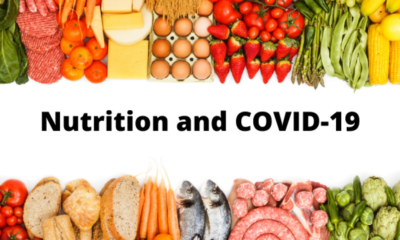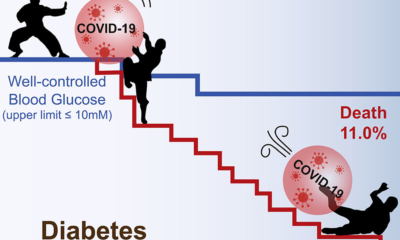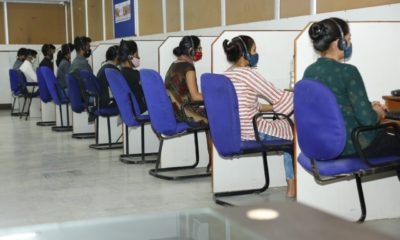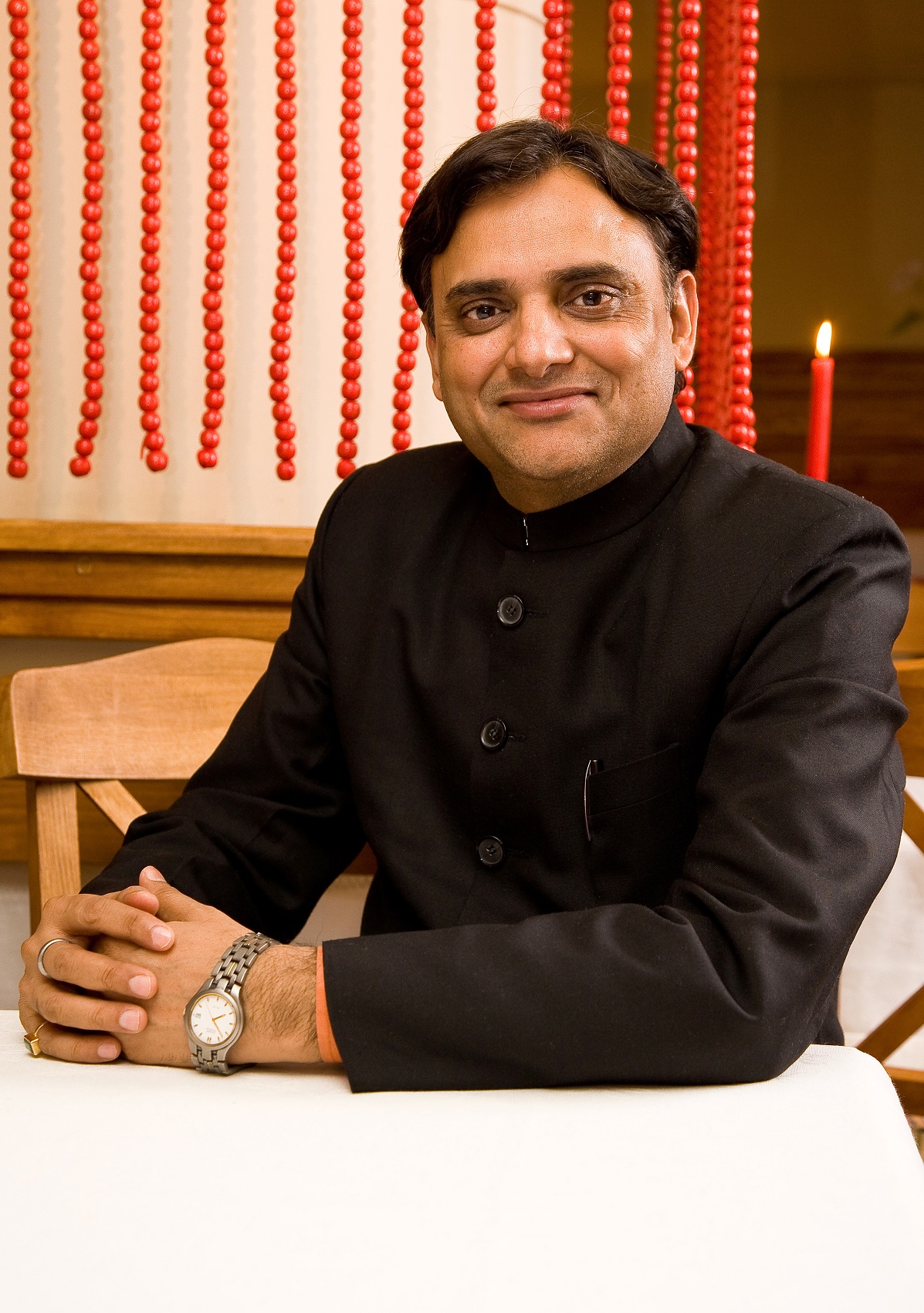Economy
COVID-19 update: UN on Hunger

Recent updates about COVID-19:
- Italy fears a second attack from the COVID-19, southern section in great distress.
- UN fears the doubling of people suffering from acute hunger.
- Oxford team is all set to start trials of a potential vaccine.
UN says that the number of people suffering from acute hunger will be double this year if proper measures aren’t taken to curb this problem. The COVID-19 pandemic has put the world on halt and many continue to suffer as the lockdown persists.
According to the UN, the persisting threat from the pandemic will most likely double the number of people facing acute hunger this year. The concern arises after a thorough new report was received from the World Food Program. The report details how the virus — and the ensuing lockdowns — will aggravate the conditions in the poorer nations of the world.
World Food Program is an integral part of the UNITED NATIONS (UN)

Source: Google.
The UN has predicted that around 265 million people belonging to the low and middle-income nations could face starvation by the end of 2020. This is double of the 135 million who are already victimised by acute food insecurity in 2019. More than 2.4 million people all over the world have been infected by the COVID-19 virus. The virus has killed over 165,000 people that we know of. Many are feared to have died without being documented.
The COVID-19 pandemic has managed to introduce some very drastic changes to how we interact, learn, and work. Along with this, the lockdowns and social distancing measures to curb the spread of COVID-19 have affected agricultural production, food security, and levels of nutrition as well. This is a worldwide phenomenon. Notably, the countries with the worst crises of food are in Africa. Now, the pandemic can be added to the long list of problems they face along with climate change and economic crises. According to the UN-WFP, much-needed food and humanitarian aid have to be delivered to those in need in the COVID-19 affected countries.
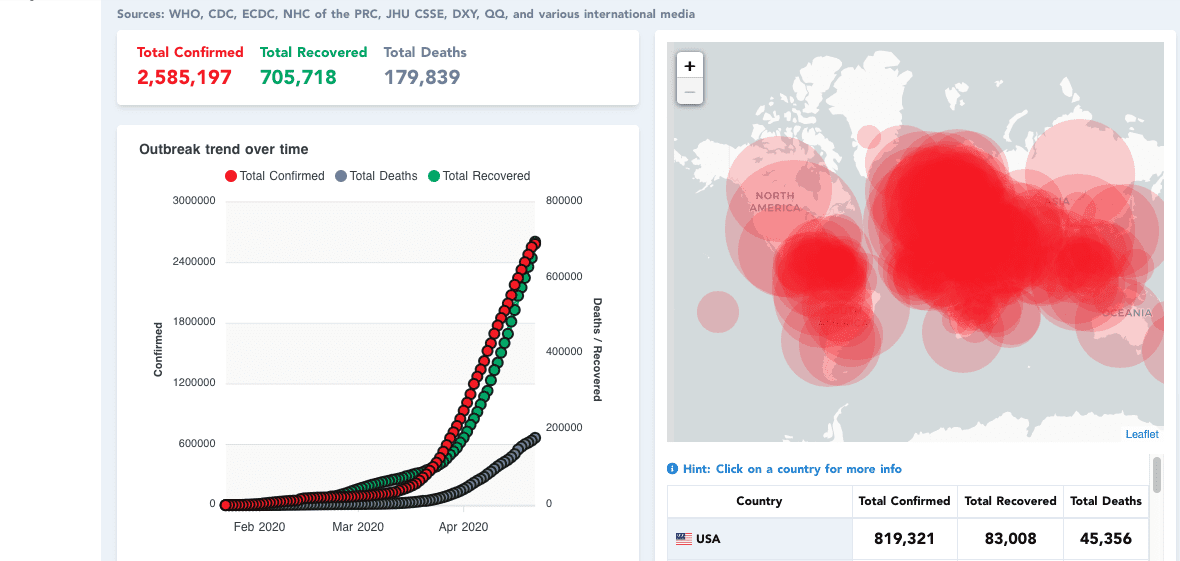
Source: Global COVID-19 Tracker
The virus coupled with the delayed response could prove catastrophic to all those people already suffering. This is a major concern voiced by Arif Husain, the chief economist with the World Food Program. According to the UN reports, global donors had only pledged a quarter of the $2 billion it needs to respond to the challenges brought by the COVID-19 pandemic.
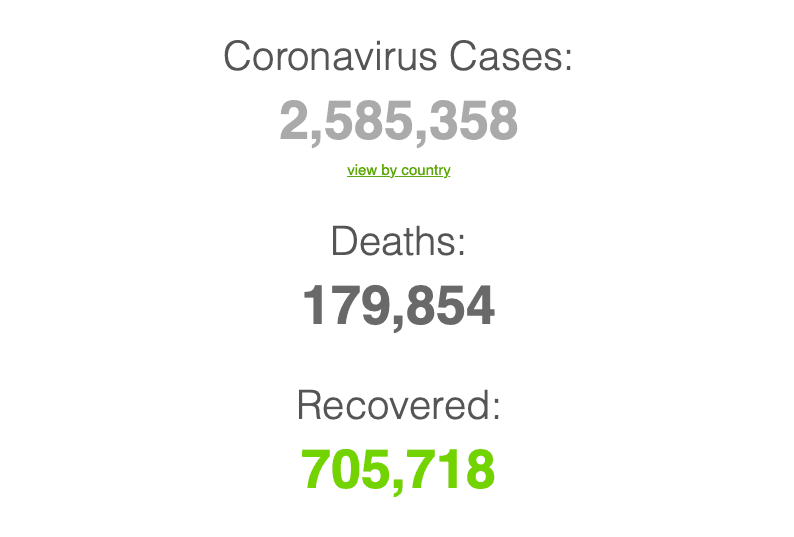
Global numbers
Meanwhile, in India, the government has been trying its best to provide for the thousands that are stranded due to the lockdown. This includes the already vulnerable group who struggled to make ends meet. During the end of March, the finance minister had announced a Rs 1.7 lakh crore relief package for the daily wage earners, women workers, and migrant workers. This came in the face of the country going into lockdown. The government also announced that an additional 5 kg of rice or wheat will be given to the poor household in India for free. Later the Delhi government converted the schools and night shelters into key food distribution points. Thanks to this, the government was able to feed around 6.5 lakh people at 1,500 food distribution centers.
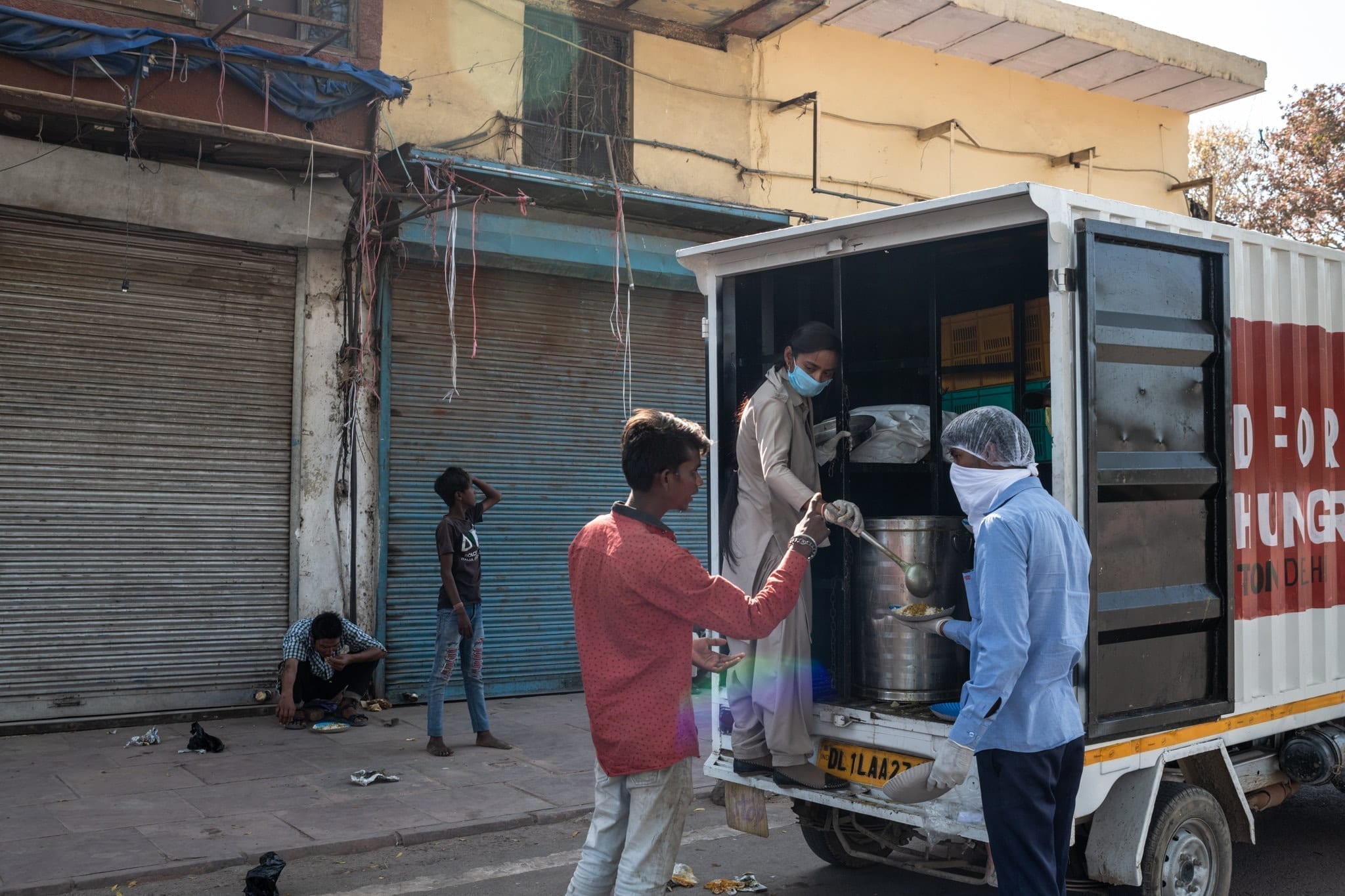
Volunteers for the COVID-19 relief. Source: NYTimes
Even though the government has assured us that adequate help is being provided, many are still left in the blindside. Many NGOs are doing a splendid job of providing for the needy while following the proper distancing norms.
As the government gears up to tackle the pandemic at full force, only time will tell how we will survive the COVID-19 pandemic.


